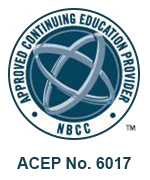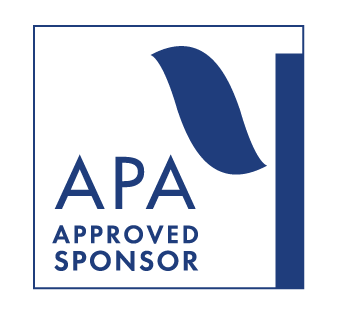Weekend Conference April 22-24, 2022 with keynote speaker Martha Stark, MD. This weekend will be offered online through our secure zoom videoconference platform.
limited scholarships monies are available, apply now
Full Weekend 14.5 CE/CME hours
$517 ($497 until end of business on April 1st)
Can’t commit to the full weekend?
Saturday Morning Only
2.5 CE/CMEs – $45
Saturday Full Day
6 CE/CMEs – $150
Program Date(s):
April 22, 2022 - April 24, 2022Weekend Overview
Are you wishing that you had a better grasp of psychodynamic concepts and their application to the clinical situation? With a focus always on the moment-by-moment translation of theory into practice, Dr. Martha Stark’s Psychodynamic Synergy Paradigm is an integrative approach to the psychotherapy of patients with deeply embedded emotional injuries and unmastered relational traumas.
This intensive weekend will feature a comprehensive – theoretical and technical – exploration of the three major psychoanalytic schools: (1) the 1-person perspective of classical psychoanalysis (with its emphasis on “interpretation” and “enhancement of knowledge”), (2) the 1½-person perspective of self psychology (with its emphasis on “empathic attunement” and “provision of corrective experience”), and (3) the 2-person perspective of contemporary relational theory (with its emphasis on “authentic engagement” and “negotiation of mutual enactments”).
To highlight not only the complex interplay, during the actual clinical hour, of these three interdependent modes of therapeutic action (knowledge, experience, and relationship) but also the transformative power of “template” interventions specifically designed to target each of these three modalities, Dr. Stark will present a variety of brief vignettes and offer an in-depth analysis of several extended cases, thereby demonstrating firsthand how you can strategically integrate into your own clinical practices the fundamentals of this broad-ranging Psychodynamic Synergy Paradigm.
The course will use lecture, large group discussion, small group/GAM group discussion, case presentation and discussion and informal discussion to achieve the course objectives.
Friday 9:40am – 6:10 pm US ET
Saturday 9:45am – 6:15pm US ET
Sunday 10:00am – 2:00pm US ET
Graduation (optional) 2:10pm – 3:00pm US ET
Schedules, reading lists, and educational objectives will be provided.
Martha Stark, M.D.
 Martha Stark, MD, is a graduate of Harvard Medical School and the Boston Psychoanalytic Institute. Board Certified by the American Association of Integrative Medicine, Dr. Stark is a Holistic, Adult and Child Psychiatrist, and Integrative Psychoanalyst in private practice in Boston, Massachusetts. As well, Dr. Stark is a Faculty member of the Harvard Medical School; Co-Founder and Co-Director of the Center for Psychoanalytic Studies; and a Faculty member of the Scientific Advisory Board at the Academy of Comprehensive Integrative Medicine. Dr. Stark has numerous teaching affiliations with local, regional, and national psychodynamic and psychoanalytic training programs. As well, Dr. Stark is an award-winning author of nine highly acclaimed books on psychoanalytic theory and technique – several of which have become “required reading” for candidates at various psychoanalytic training institutes across the United States and for students in various psychodynamic psychotherapy training programs both in this country and abroad.
Martha Stark, MD, is a graduate of Harvard Medical School and the Boston Psychoanalytic Institute. Board Certified by the American Association of Integrative Medicine, Dr. Stark is a Holistic, Adult and Child Psychiatrist, and Integrative Psychoanalyst in private practice in Boston, Massachusetts. As well, Dr. Stark is a Faculty member of the Harvard Medical School; Co-Founder and Co-Director of the Center for Psychoanalytic Studies; and a Faculty member of the Scientific Advisory Board at the Academy of Comprehensive Integrative Medicine. Dr. Stark has numerous teaching affiliations with local, regional, and national psychodynamic and psychoanalytic training programs. As well, Dr. Stark is an award-winning author of nine highly acclaimed books on psychoanalytic theory and technique – several of which have become “required reading” for candidates at various psychoanalytic training institutes across the United States and for students in various psychodynamic psychotherapy training programs both in this country and abroad.Schedule of Presentations
Educational Objectives
Friday April 22
How Does Psychotherapy Work?
- summarize the importance of transforming psychological rigidity into psychological flexibility
- compare less-evolved defenses with more-evolved adaptations
Small Group
- Discuss 3 ways in which psychodynamic psychotherapy affords the patient an opportunity to master experiences which had once been overwhelming and defended against.
- Name 4 ways that as a result of successful psychodynamic psychotherapy treatment resistance is replaced by awareness.
Re-feeding after Emotional Starvation: The Emergence of a True Self
- Discuss two psychodynamic aspects of optimally stressful statements
- Describe one way that working with optimally stressful statements could work in a clinical setting with a patient that you are currently treating.
Small Group
- Discuss two characteristics of Optimal Stress.
- Demonstrate one example of how to use an optimally stressful statement
Saturday April 23
Relentless Hope: The Refusal to Grieve
- Summarize the relationship between grieving and adaptively internalizing the good that had been there prior to the introduction of the bad
- Define the role of optimal disillusionment in helping the patient evolve from relentless pursuit of the unattainable to acceptance and appreciation
Small Group
- Summarize the 4 ways in which relentless hope serves as a defense.
- Name 2 ways in which grieving early heartbreak transforms those defensive needs.
A Heart Shattered, The Private Self, and A Life Unlived: An Existential-Humanistic Approach to Relentless Despair
- Elaborate upon the patient’s intense ambivalence about entering into the world of objects
- Explain the relevance of the concept of “dreading surrender to resourceless dependence” upon another and expound upon the importance of “moments of authentic meeting” as offering opportunity for restoring purpose, meaning, and direction to a life otherwise unlived
Small Group
- Identify 2 ways in which a patient who’s suffered early-on heartbreak defends themselves.
- Provide 1 clinical example of a patient moving from the dread of surrender to resourceless dependence.
Plenary
- Study the feedback received from the participants regarding their experience of the conference to date and to discuss any procedural and logistical program concerns.
- Compare small and large group experiences of Stark’s theory of Relentlessness Hope and her Models (5) to help explain what is occurring during a therapeutic hour with a client.
Sunday April 24
UNDERSTANDING LIFE BACKWARD BUT LIVING IT FORWARD: Analyzing to Understand but Envisioning Possibilities to Incentivize Action
- Develop a quantum disentanglement statement that juxtaposes old bad learned expectation with new good envisioned possibility
- Identify the relationship between jolting mismatch experiences and therapeutic memory reconsolidation
Small Group
- Provide 2 clinical experience of co-created quantum disentanglement statements designed to release the patient from her past as she envisions new possibilities for the future.
- Give an example of “analysis paralysis”
Closing Dialogue
- Apply the concept of “Relentless Hope” to clinical case utilizing the large and small group discussions
- Describe Stark’s concept of anxiety as it relates to working with a client in the framework of object relations theory.
Registration
Full Conference:
$497 up to 21 days in advance; $517 thereafter
*Full members: $359
*Associate members: $410
Full time students: $150
Saturday One Day (morning and afternoon): $150
Saturday Morning only: $45
*Login to the website with your member information to access your discounted registration rate
Tuition and Fees
See costs above
Limited scholarship funds are available for this training: https://theipi.org/scholarships/
Continuing Education Credit Hours
Weekend Conference:
14.5 CE/CME credits
Saturday One Day:
6 CE/CME credits
Saturday Morning only:
2.5 CE/CME credits
Program Chair
Lorrie Peters LCSW and Pat Hedegard MA, LMHC
 |
Lorrie Peters, LCSW Lorrie is in private practice in Harrisburg, PA. She is national faculty at IPI and is the current chair of the 2 year Object Relations Theory and Practice Certificate Program at IPI. She is a doctoral student at ICSW. |
 |
Pat Hedegard MA, LMHC |
Should you have any questions about the program or the application process, please feel free to contact:
Membership Benefits
Become a member of IPI at the “Associate Member PLUS”, or “Full Member PLUS” level and you will receive an IPI Zoom Pro account as one of your member benefits. Associate and Full Members also receive discounted registration fees for most of IPI’s events, a subscription to PEP Web, the online psychoanalytic library, and other benefits depending on membership level.
HIPAA compliant Zoom video accounts are provided for all IPI Associate Member Plus and Full Member Plus memberships. IPI has a HIPAA Business Associate Agreement with Zoom, which provides a HIPAA compliant platform for our accounts. HIPPA compliance is strongly recommended for all internet-mediated clinical work and clinical teaching. The “PLUS” add-on to the IPI membership gives the user the ability to host online meetings with multiple people at the same time. [Current members can upgrade to the “Plus” account and only pay the difference in price from your current membership level.]
Click for IPI Membership and Zoom Account information
Continuing Education Information
This activity has been planned and implemented in accordance with the accreditation requirements and policies of the Accreditation Council for Continuing Medical Education (ACCME) through the joint providership of American Psychoanalytic Association and the International Psychotherapy Institute. The American Psychoanalytic Association is accredited by the ACCME to provide continuing medical education for physicians.”
The American Psychoanalytic Association designates this Live Activity for a maximum of 14.5 AMA PRA Category 1 Credit(s)™. Physicians should claim only the credit commensurate with the extent of their participation in the activity.
IMPORTANT DISCLOSURE INFORMATION FOR ALL LEARNERS: None of the planners and presenters for this educational activity have relevant financial relationship(s)* to disclose with ineligible companies* whose primary business is producing, marketing, selling, re-selling, or distributing healthcare products used by or on patients.
*Financial relationships are relevant if the educational content an individual can control is related to the business lines or products of the ineligible company.
The International Psychotherapy Institute, IPI, is approved by The American Psychological Association to sponsor continuing education for psychologists. IPI maintains responsibility for the program and its content. The International Psychotherapy Institute has been approved by NBCC as an Approved Continuing Education Provider, ACEP No. 6017. Programs that do not qualify for NBCC credit are clearly identified. The International Psychotherapy Institute is responsible for all aspects of the programs. The International Psychotherapy Institute is an approved sponsor of the Maryland Board of Social Work Examiners for continuing education credits for licensed social workers in Maryland. The International Psychotherapy Institute is recognized by the New York State Education Department’s State Board for Social Work as an approved provider of continuing education for licensed social workers #SW-0299.
Participants are responsible for verifying that IPI CE credit is accepted by the licensing boards in their own states. Please note: At this time we are aware that CE credit for IPI events will not be accepted by the New Jersey Board of Social Work.



